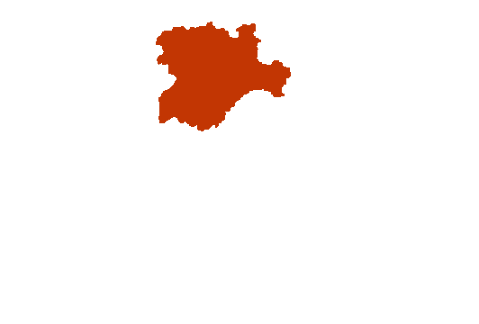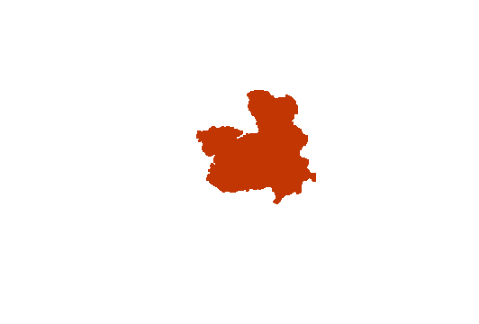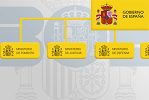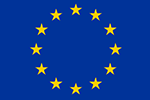Volunteering
Content
National Volunteering Strategy
Competences related to volunteering in Spain are shared by the General State Administration, the Autonomous Communities and Local Government Entities.
The General State Administration is currently in the process of drafting a new National Volunteering Strategy as the last one ended in 2014, for which reason no national calls exist at this time.
The legal and/or technical![]() references section of this page contains links to the different volunteer websites of the Autonomous Communities, which currently have their respective calls.
references section of this page contains links to the different volunteer websites of the Autonomous Communities, which currently have their respective calls.
How to become a volunteer in the EU
Volunteering is a showing solidarity with a local community, whether in one’s country or abroad. It also allows you to learn about other cultures, develop new skills and participate in unique experiences.
The European Solidarity Corps![]() is a programme that offers you the opportunity to work as a volunteer in your own country or in another EU or non-EU country, carrying out activities that will provide you with life experience, learning, languages and the opportunity to work with a community. Any young person aged between 18 and 30 can take part. Volunteering is not remunerated, but all your expenses are covered and you will have additional insurance.
is a programme that offers you the opportunity to work as a volunteer in your own country or in another EU or non-EU country, carrying out activities that will provide you with life experience, learning, languages and the opportunity to work with a community. Any young person aged between 18 and 30 can take part. Volunteering is not remunerated, but all your expenses are covered and you will have additional insurance.
Would you like to join the European Solidarity Corps and take part in a volunteering project abroad for between 2 and 12 months? If the answer is yes, find out more in the following sections.
How to take the first steps in the EU
If you want to join the European Solidarity Corps, the first step is to register with the European Solidarity Corps Website. You must be 17 or over to register, but you cannot take part in the project until you have reached the age of 18. Persons up to 30 years of age can take part in the European Solidarity Corps projects. After completing a simple registration process, you will see a wide variety of projects related to solidarity.
You can apply for the one that most interests you and contact the entities responsible for organising it. If you are selected, you will become a member of the European Solidarity Corps!
Team volunteering is another possibility. This allows groups of 10–40 young people from at least two countries to carry out voluntary work for a period of between two weeks and two months (for instance, during your holidays).
In the volunteering projects, the programme covers all participation expenses (travel, accommodation and subsistence) and participants also receive a monthly allowance for personal expenses.
You can register by creating an account with EU Login , the gateway to all EU resources.
Other activities in the EU
Solidarity projects: these allow groups of at least five young people aged between 18 and 30 who have registered with the European Solidarity Corps website to design and implement a project that has a positive and direct effect on their local community.
Next steps in the EU
Finding a project is just the first step. Before embarking on your new adventure, you must make many preparations.
- Contact ex-volunteer associations. They will give you an idea about how to tackle the project, what to expect and how to best prepare yourself.
- Find out about the mandatory formalities in your country and in the country where the project is to be executed, such as visas, residence permits, etc.
- Attend a training course beforehand. This is a good opportunity to meet future colleagues.
- Gather as much information as you can about the country you will be travelling to. The more you know about where you are going, the better.
FAQs about becoming a volunteer in the EU
-
Do I need to have special qualifications to become a volunteer in the European Solidarity Corps?
NO – The programme is open to everyone. In addition, you will receive special training before you depart.
-
I want to work as a volunteer abroad. Where can I find information and assistance?
To register and obtain information about all the European Solidarity Corps volunteering projects, visit the European Solidarity Corps website .
.
Or you can contact your national agency or your regional SALTO-Youth resource centre for projects in Eastern Europe & Caucasus, South-East Europe and the Euro-Mediterranean region.
-
What am I taking on by joining the European Solidarity Corps?
When you join the European Solidarity Corps, you will be asked to confirm that you accept and defend the objectives and principles of the European Solidarity Corps. Your data will be recorded in the European Solidarity Corps system.
If you decide that you do not want them to contact you for European Solidarity Corps projects, you should start your session in your personal account and temporarily hide your profile from the organisations or even delete your account. You also have the option of no longer receiving emails and other correspondence.
-
I want to work as a volunteer in Spain with the European Solidarity Corps. Do I need to be able to speak Spanish?
NO – Unless you need to have a basic command of the language in order to perform the work. In all cases, the projects include linguistic support and so you will learn some Spanish while you are there.
-
Do I need insurance?
YES - But as a participant in the European Solidarity Corps you will be covered by a specific insurance policy taken out free of charge by the European Commission.
-
What type of work will I be asked to do in the European Solidarity Corps projects?
The projects cover a wide array of topics but they must all fulfil the objectives and principles of the European Solidarity Corps.
Some examples of tasks that you might be asked to carry out are given below:
- Perform tasks related to the environment and nature conservation, projects related to agriculture, ecovillages, recycling or climate change;
- Participate in projects that use creativity and culture in local communities to promote participation, citizenship and non-formal learning;
- Contribute to projects related to promoting employment and entrepreneurship and cooperating with organisations that develop the employment capabilities of people;
- Work with disabled persons or people with special needs and in areas related to the inclusion of vulnerable groups or fighting discrimination;
- Take part in projects dedicated to the reception and integration of asylum-seekers and migrants.
-
What if I am not interested in the project offered by an organisation? Am I obliged to accept their proposal?
The organisations authorised by the European Commission to implement European Solidarity Corps projects will have access to your data when they seek potential volunteers or workers for their projects. If an organisation contacts you to offer you a post in their project, you are not obliged to accept; you will always decide whether or not you want to take part in it.
-
Must I pay for participating in a European Solidarity Corps project?
NO – Participating in the European Solidarity Corps is free.
You will not receive any remuneration whatsoever for participating in the volunteering projects, but you will receive other types of aid such as the of travelling to and from the project site, accommodation, board, health insurance and pocket money to cover personal expenses.
-
What if I don’t like the European Solidarity Corps project? Can I leave it?
If you are in very difficult circumstances and there is no way to solve your problem, you can terminate your volunteering agreement, but only as a last resort.
-
I want to take part in a project in Asia. Do I need a visa?
POSSIBLY – Taking part in a volunteering project does not mean you are exempt from national visa obligations. Be sure to find out!
-
I have just been selected as a volunteer for a project in another EU country. Which authorities are responsible for my social security rights? What will my legal status be in the other country?
The legal status of a volunteer is not regulated by EU legislation. People who work abroad are controlled by the sending/hosting organisations. As a volunteer, you are entitled to live in any EU country, provided you have sufficient economic means and full health insurance coverage. As long as those conditions are met, you will be covered by the social security system of that country. If the stay in the other EU country is temporary, you can use the European health insurance card of your country of origin to receive the medical assistance you need during your stay. More information is available here.
-
At the end of my volunteering period with the European Solidarity Corps, will I receive a certificate that is recognised throughout the EU?
If you have taken part in a European Solidarity Corps or an Erasmus+ project, you will receive a Youthpass certificate.
-
What is the Youthpass certificate and where can I apply for it?
The Youthpass certificate guarantees that the experience you have acquired by participating in the European Erasmus+ Youth in Action and European Solidarity Corps programmes is recognised as an educational experience and as a non-formal learning period. If you take part in an approved project included in these programmes, the organisation responsible for managing the activity and the project must register with the Youthpass website and enter your data. Then your certificate will be created and validated.
guarantees that the experience you have acquired by participating in the European Erasmus+ Youth in Action and European Solidarity Corps programmes is recognised as an educational experience and as a non-formal learning period. If you take part in an approved project included in these programmes, the organisation responsible for managing the activity and the project must register with the Youthpass website and enter your data. Then your certificate will be created and validated.
Do I need to have special qualifications to become a volunteer in the European Solidarity Corps?
NO – The programme is open to everyone. In addition, you will receive special training before you depart.
I want to work as a volunteer abroad. Where can I find information and assistance?
To register and obtain information about all the European Solidarity Corps volunteering projects, visit the European Solidarity Corps website![]() .
.
Or you can contact your national agency or your regional SALTO-Youth resource centre for projects in Eastern Europe & Caucasus, South-East Europe and the Euro-Mediterranean region.
What am I taking on by joining the European Solidarity Corps?
When you join the European Solidarity Corps, you will be asked to confirm that you accept and defend the objectives and principles of the European Solidarity Corps. Your data will be recorded in the European Solidarity Corps system.
If you decide that you do not want them to contact you for European Solidarity Corps projects, you should start your session in your personal account and temporarily hide your profile from the organisations or even delete your account. You also have the option of no longer receiving emails and other correspondence.
I want to work as a volunteer in Spain with the European Solidarity Corps. Do I need to be able to speak Spanish?
NO – Unless you need to have a basic command of the language in order to perform the work. In all cases, the projects include linguistic support and so you will learn some Spanish while you are there.
Do I need insurance?
YES - But as a participant in the European Solidarity Corps you will be covered by a specific insurance policy taken out free of charge by the European Commission.
What type of work will I be asked to do in the European Solidarity Corps projects?
The projects cover a wide array of topics but they must all fulfil the objectives and principles of the European Solidarity Corps.
Some examples of tasks that you might be asked to carry out are given below:
- Perform tasks related to the environment and nature conservation, projects related to agriculture, ecovillages, recycling or climate change;
- Participate in projects that use creativity and culture in local communities to promote participation, citizenship and non-formal learning;
- Contribute to projects related to promoting employment and entrepreneurship and cooperating with organisations that develop the employment capabilities of people;
- Work with disabled persons or people with special needs and in areas related to the inclusion of vulnerable groups or fighting discrimination;
- Take part in projects dedicated to the reception and integration of asylum-seekers and migrants.
What if I am not interested in the project offered by an organisation? Am I obliged to accept their proposal?
The organisations authorised by the European Commission to implement European Solidarity Corps projects will have access to your data when they seek potential volunteers or workers for their projects. If an organisation contacts you to offer you a post in their project, you are not obliged to accept; you will always decide whether or not you want to take part in it.
Must I pay for participating in a European Solidarity Corps project?
NO – Participating in the European Solidarity Corps is free.
You will not receive any remuneration whatsoever for participating in the volunteering projects, but you will receive other types of aid such as the of travelling to and from the project site, accommodation, board, health insurance and pocket money to cover personal expenses.
What if I don’t like the European Solidarity Corps project? Can I leave it?
If you are in very difficult circumstances and there is no way to solve your problem, you can terminate your volunteering agreement, but only as a last resort.
I want to take part in a project in Asia. Do I need a visa?
POSSIBLY – Taking part in a volunteering project does not mean you are exempt from national visa obligations. Be sure to find out!
I have just been selected as a volunteer for a project in another EU country. Which authorities are responsible for my social security rights? What will my legal status be in the other country?
The legal status of a volunteer is not regulated by EU legislation. People who work abroad are controlled by the sending/hosting organisations. As a volunteer, you are entitled to live in any EU country, provided you have sufficient economic means and full health insurance coverage. As long as those conditions are met, you will be covered by the social security system of that country. If the stay in the other EU country is temporary, you can use the European health insurance card of your country of origin to receive the medical assistance you need during your stay. More information is available here.
At the end of my volunteering period with the European Solidarity Corps, will I receive a certificate that is recognised throughout the EU?
If you have taken part in a European Solidarity Corps or an Erasmus+ project, you will receive a Youthpass certificate.
What is the Youthpass certificate and where can I apply for it?
The Youthpass certificate![]() guarantees that the experience you have acquired by participating in the European Erasmus+ Youth in Action and European Solidarity Corps programmes is recognised as an educational experience and as a non-formal learning period. If you take part in an approved project included in these programmes, the organisation responsible for managing the activity and the project must register with the Youthpass website and enter your data. Then your certificate will be created and validated.
guarantees that the experience you have acquired by participating in the European Erasmus+ Youth in Action and European Solidarity Corps programmes is recognised as an educational experience and as a non-formal learning period. If you take part in an approved project included in these programmes, the organisation responsible for managing the activity and the project must register with the Youthpass website and enter your data. Then your certificate will be created and validated.
Information for each Autonomous Community















Andalucía Aragón Asturias, Principado de Balears, Illes Canarias Cantabria Castilla y León Castilla-La Mancha Cataluña Ciudad de Ceuta Ciudad de Melilla Comunitat Valenciana Extremadura Galicia Madrid, Comunidad de Murcia, Región de Navarra, Comunidad Foral de País Vasco Rioja, La
Legal and/or technical references
-
Volunteering in Asturias

-
Volunteering in Castilla y León

-
Volunteering in Catalonia

-
Volunteering in the Community of Madrid

-
Volunteering in Extremadura

-
Volunteering in Melilla

-
Volunteering in the Basque Country

-
European Solidarity Corps Website

-
National European Youth Programme management agencies

-
Database of accredited organisations

-
Youthpass certificate











